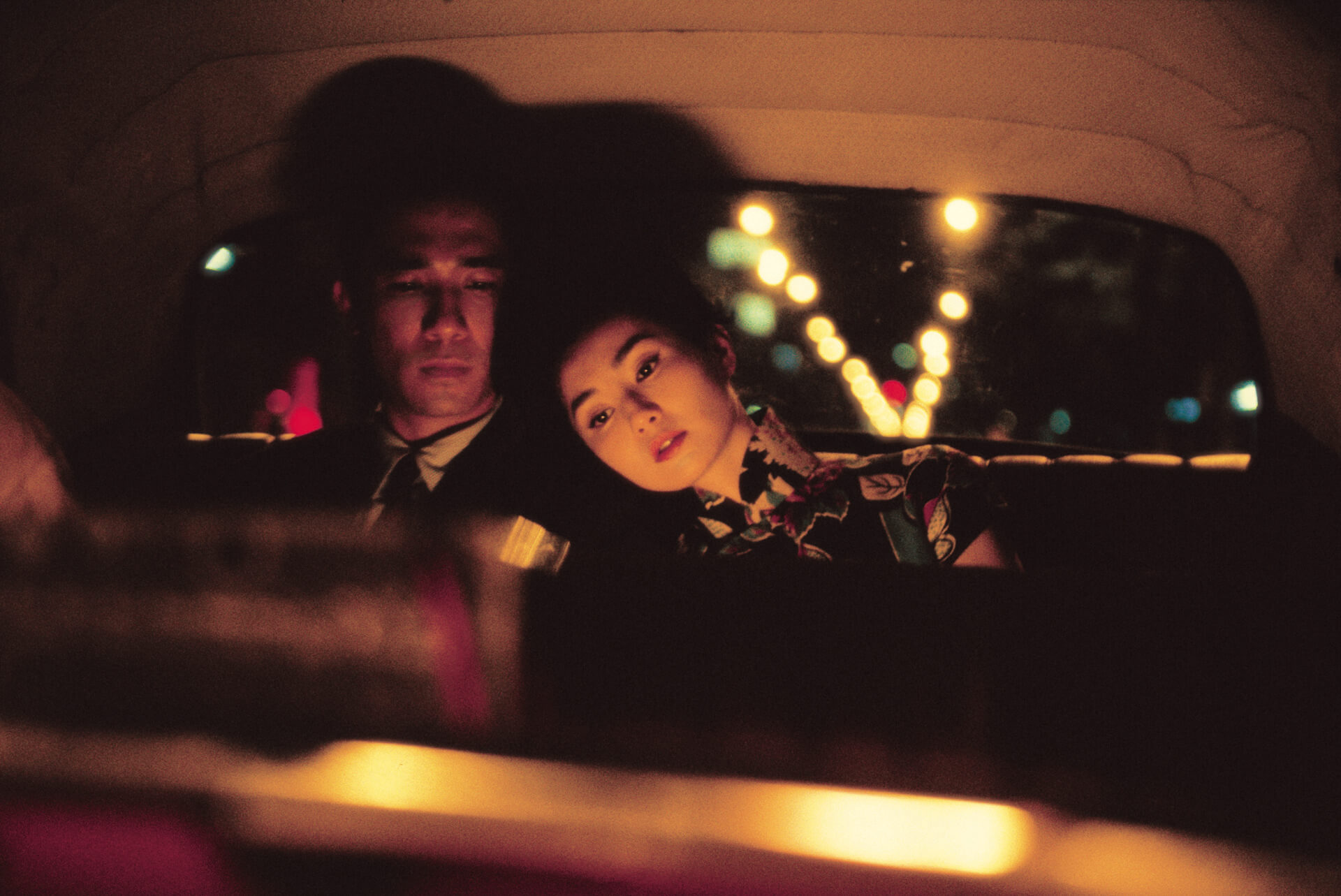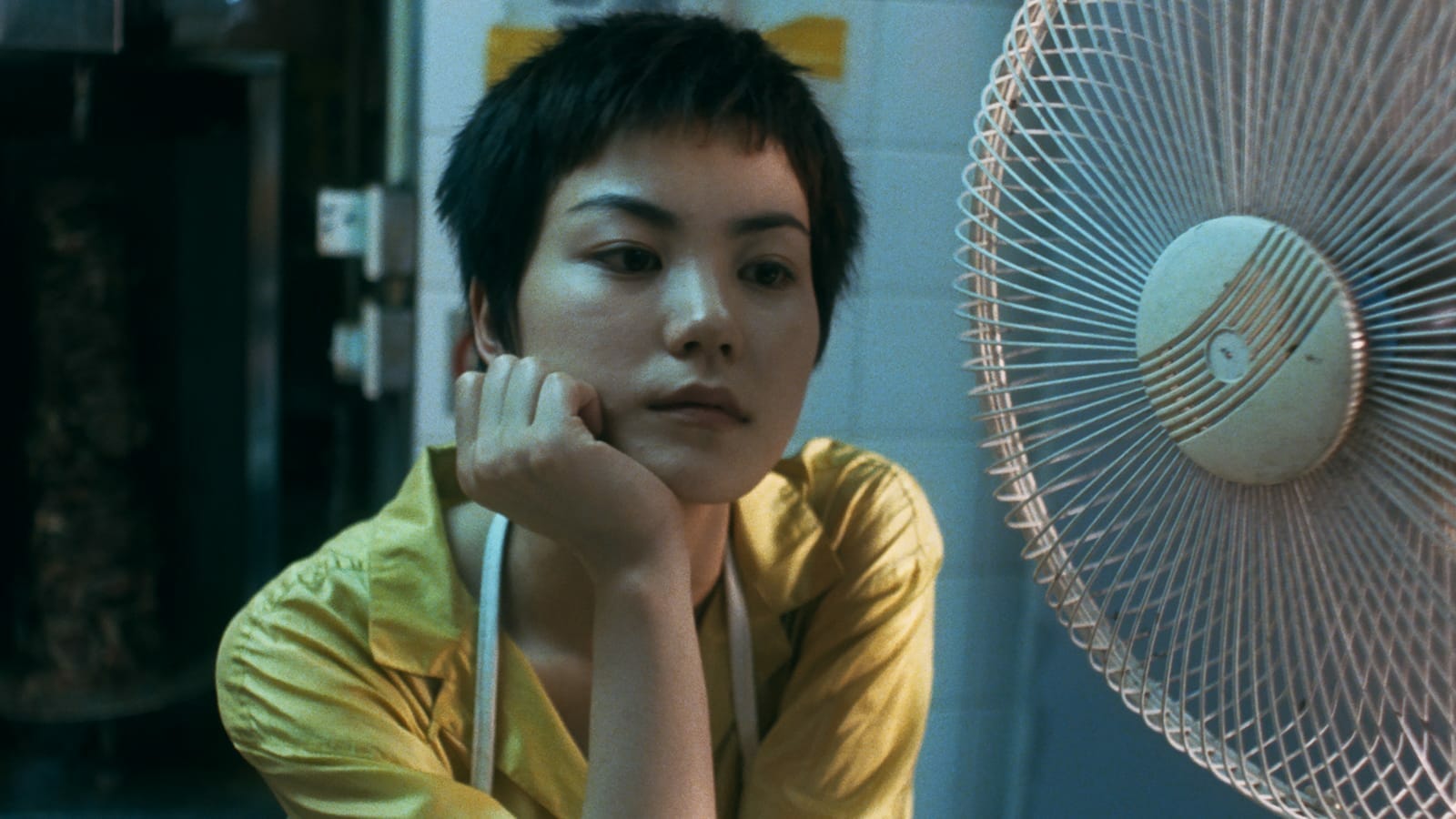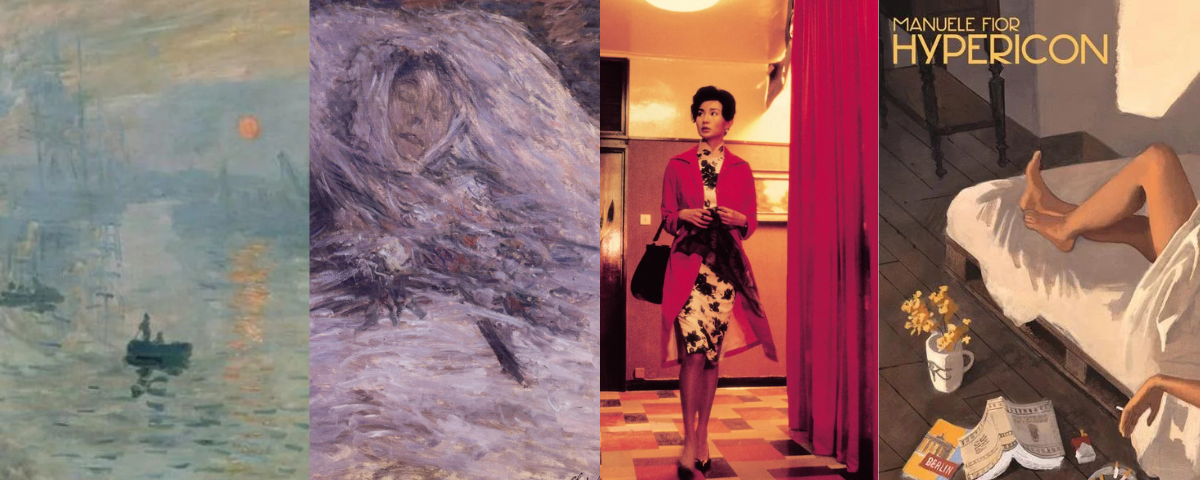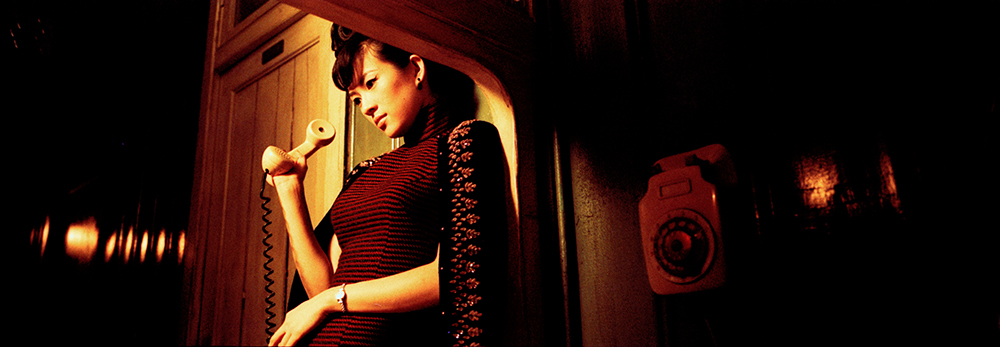
2046 by Wong Kar-wai Review | Melancholia as a Worldview
Year
Runtime
Director
Writer
Production Designer
Format
Genre
Subgenre
Following the resounding success of In the Mood for Love, which established him as one of the world’s most influential visual auteurs, Hong Kong filmmaker Wong Kar-wai returned to the big screen in 2004 with 2046, a film that expanded on the themes and storyline of his previous effort.
Iconic and visionary, Wong Kar-wai can claim to be one of the few poets of contemporary cinema. Trained in the prolific Hong Kong film industry of the 1980s, he developed an unmistakable style in which the hazy atmospheres surrounding his characters reflect their inner conflicts. With 2046 as one of the most prominent examples, all of his work revolves around two central themes: love and loneliness. In this film, however, these themes take on a distinctive nuance, as solitude is born of the effort to cling to an unattainable love, steeped in the melancholy of moments never fully lived.
2046 competed for the Palme d’Or at the 57th Cannes Film Festival and won Best Art Direction and Best Original Film Score at the 41st Golden Horse Film Festival Awards in Taiwan.
Once Upon a Time in Hong Kong
Chow Mo-Wan (Tony Leung) returns to Hong Kong after the heartbreak of a failed romance and checks into a modest hotel. He tries to rent room 2046, but ends up in the room next door. He is an emotionally distant writer, a sophisticated seducer who avoids commitment and drifts through relationships without forming lasting bonds. From his room, he becomes entangled in the lives of two women who occupy room 2046: Bai Ling (Ziyi Zhang), a sex worker with whom he has a fleeting physical affair, and Wang Jing-wen (Faye Wong), the daughter of the hotel owner, who is hopelessly in love with a Japanese man. He keeps his relationship with Bai Ling superficial, while his bond with Wang Jing-wen, marked by unspoken longing, remains inevitably platonic. Room 2046 thus becomes a symbolic space, inhabited by women Chow desires but can never truly love.
2046 as a State of Mind
Room 2046 is not haunted. Chow’s lack of engagement is not due to its qualities. Rather, a chain of associations traps Chow in the past. Chow’s mind associates Room 2046 with his unfulfilled love, which prevents him from moving on with another woman. His emptiness conceals an emotional charge that he tries to release by writing a dystopian novel, not coincidentally called 2046, an endeavor in which Wang Jing-wen helps him, once again echoing In the Mood for Love.
In his fictional world, a metaphorical representation of his pain, there is a place called 2046 where nothing changes. A place where time stops flowing and people go to recover their memories and stay with them. As a mental space, 2046 resembles melancholia, a state in which the present and the future have no hold on the subject, who is preoccupied with preserving the past.
At the beginning of the film, a voice-over – Chow, the narrator of the novel, Wong Kar-wai? – introduces 2046 as a conceptual space and tells the viewer that he has just returned from it. He’s the only one who made it, and he’s going to show us what it looks like. From there, the film unfolds as a reflection on 2046 itself – a state of melancholia mirrored in Chow’s detached and enigmatic personality. Art and life intertwine: the novel Chow is writing serves as a secondary narrative that not only provides glimpses into his inner world but also exposes the vulnerability hidden beneath his apparent coldness.
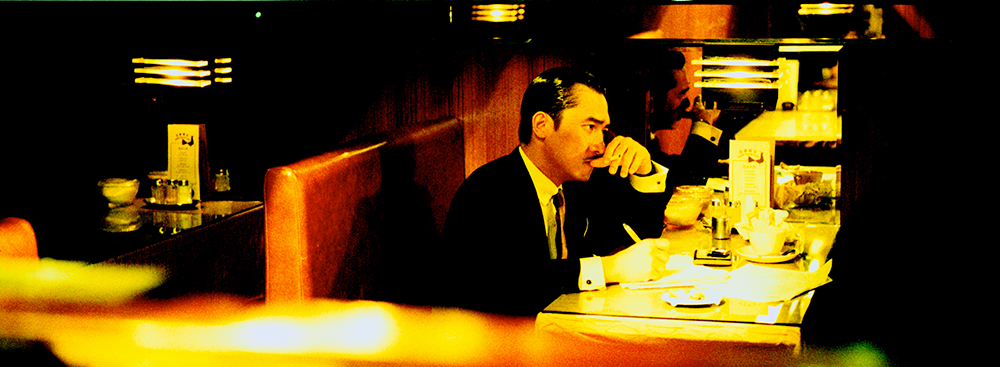
A Melancholic Aesthetic
Thanks to the collaboration of no less than three cinematographers, Christopher Doyle, Kwan Pun Leung, and Lai Yiu-fai, each frame of 2046 becomes a psychic fragment brimming with emotional intensity. The saturated, faded colors and frequent use of fragmented framing, with characters appearing through slits, evoke a sense of distance – belonging more to the past or a melancholy dream than to the present. These compositional choices, coupled with the skillful use of reflective surfaces, immerse the viewer in the feeling of encountering someone’s memories.
Wong Kar-wai’s characters express their inner turmoil through poignant gestures and subtle cues, delving into what lies beneath their composure. Folded in on themselves, they are acutely aware of the passage of time, contemplating what is no more, or what could have been but never was: their losses and unfulfilled desires.
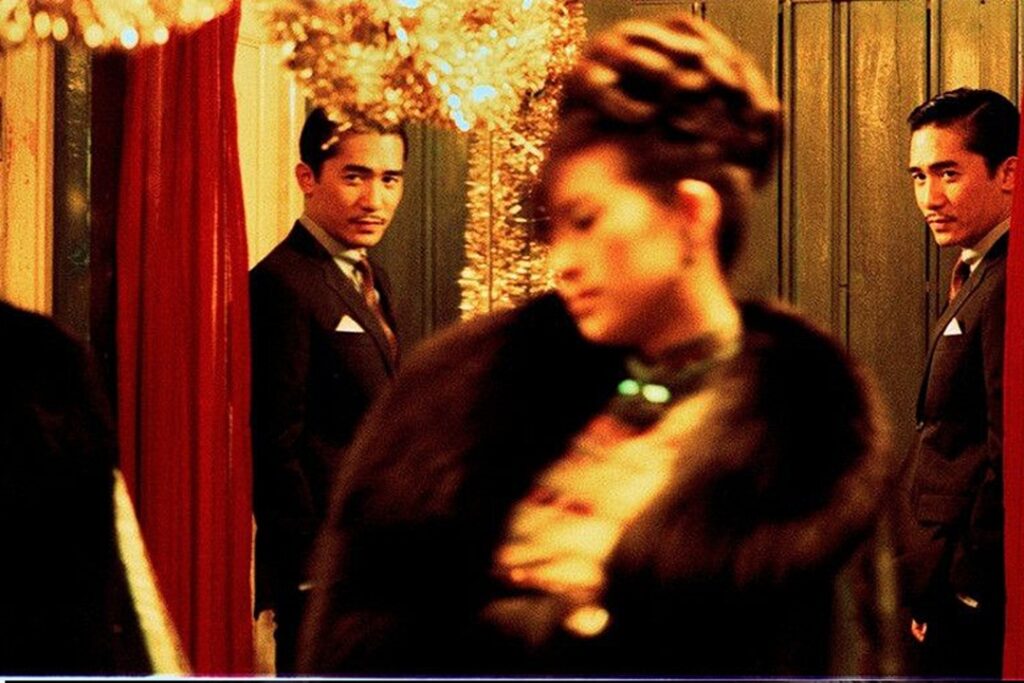
The Music of Loss
The melancholia that pervades 2046 is expressed not only visually through sophisticated composition and acting, but also emotionally through the music. The moving, lyrical themes of Japanese composer Shigeru Umebayashi and the work of German composer Peer Raben, who has worked with Rainer Werner Fassbinder, play a crucial role in creating an ethereal, romantic atmosphere. The music shapes the viewer’s perception, guiding emotions and amplifying the feelings of the characters. Umebayashi’s main theme, in particular, imparts a growing dramatic intensity that reflects Chow’s inability to escape the past and reinforces his emotional paralysis.
In addition to newly composed pieces, Wong Kar-wai also uses classics such as the Casta Diva from Vincenzo Bellini’s Norma, famously performed by Maria Callas. This choice connects the film to a long tradition of elegiac art that explores the beauty and tragedy of impossible love.
In conclusion, Wong Kar-wai supports his main themes by constructing a melancholic aesthetic. In doing so, he gives us a jewel of contemporary cinema that belongs to a specific tradition, whose motto could be summarized by a reinterpretation of the first lines of Anna Karenina. Happy lovers are all alike; every unhappy lover is unhappy in their own way.
Tag
Buy a ☕ for Hypercritic







